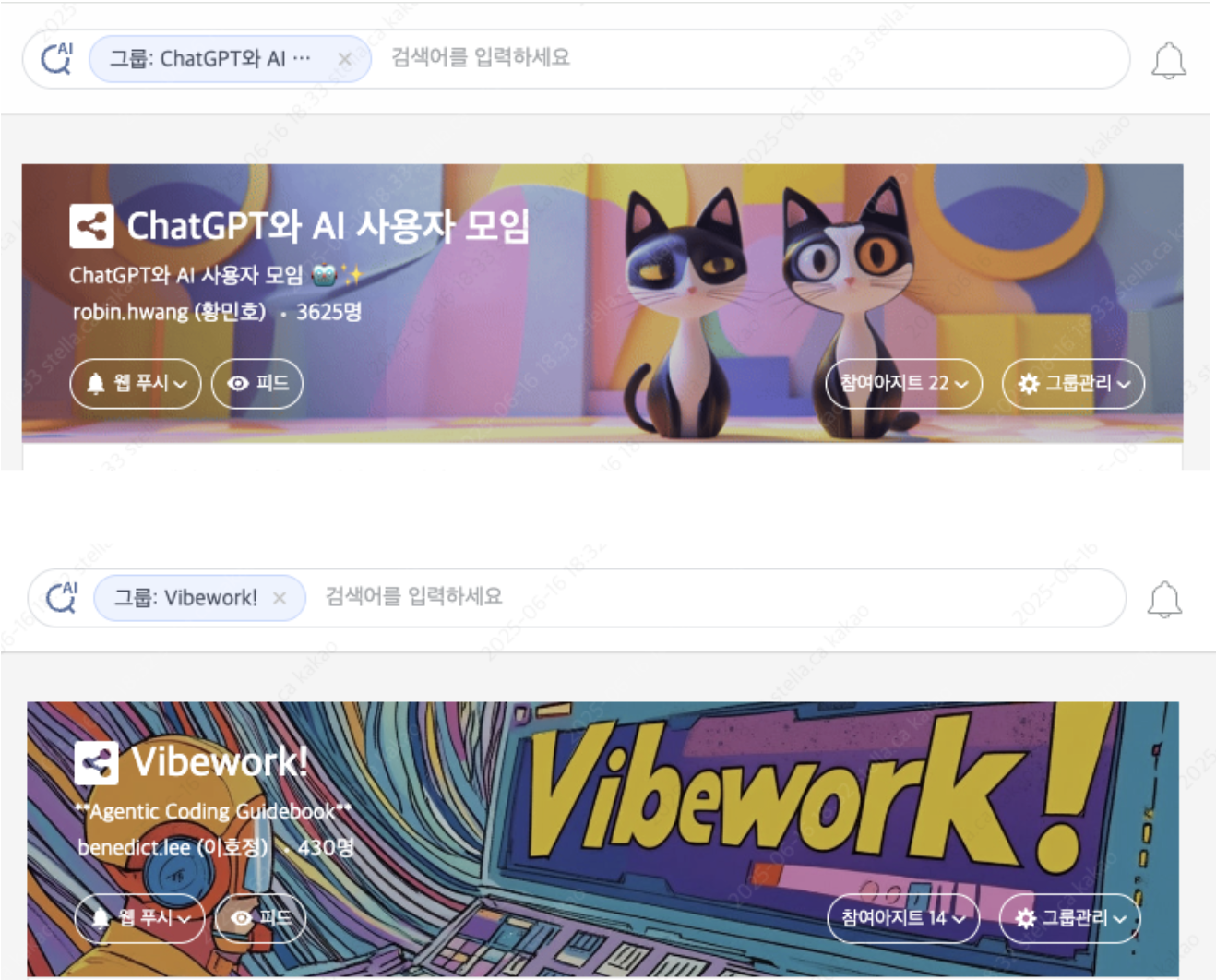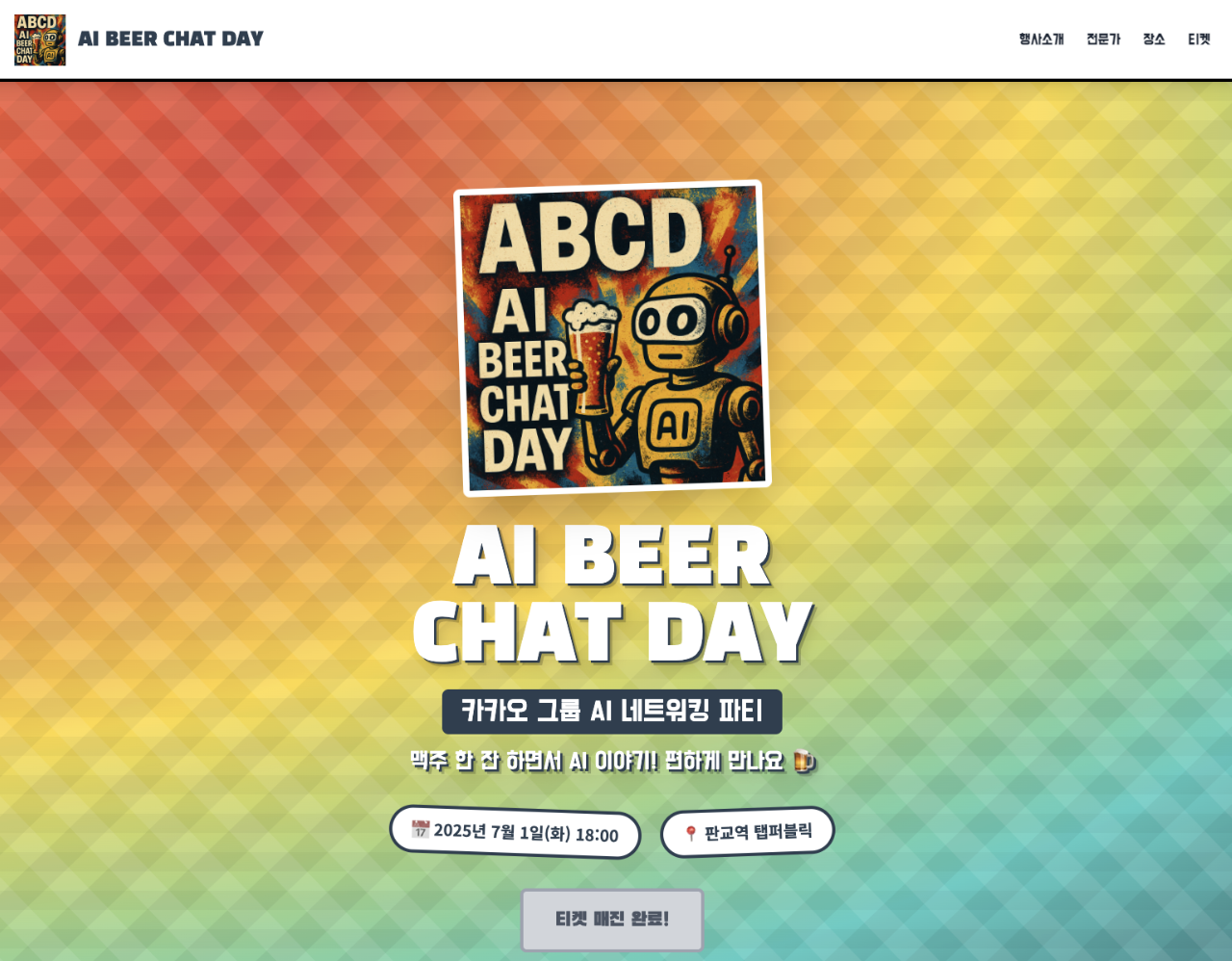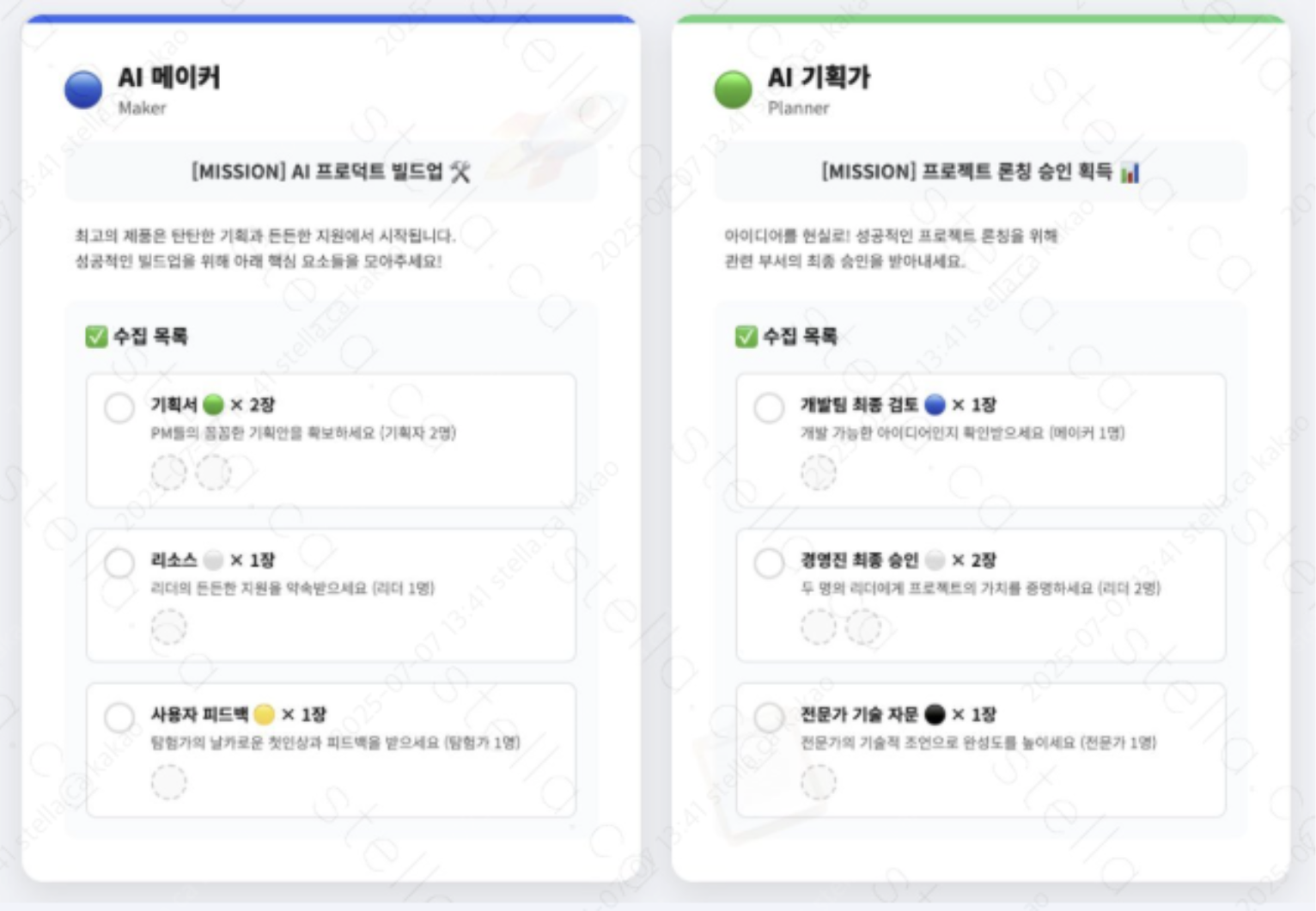TOC
Generating TOC...
2.6. An experimental culture that encourages failure
AI technology is developing faster and changing more rapidly than any other existing technology. AI models that were cutting-edge yesterday may become obsolete today, and new AI technologies and use cases that were completely unexpected are appearing as a day away.
In order to maintain a continuous competitive advantage in this dynamic environment, it is paramount to constantly learn new technologies and build a culture where the entire organization adapts quickly to changes. And the most powerful driver of this learning and adaptation is an ‘experimental culture that encourages failure and learns from it’.
An organization that learns, an organization that is ahead of change
- Investing time and resources for continuous learning and exploration: Kakao intentionally invests time and resources so that employees can learn and explore new AI technology trends and develop their own competencies, not just immerse themselves in their current work.
- Revitalizing internal knowledge sharing platforms and communities: We actively support platforms and community activities to freely share AI-related knowledge, experiences, and success and failure stories within the company and learn together.
- Active exchange and cooperation with external ecosystems: Through active exchanges and technical cooperation with external AI ecosystems such as leading domestic and international universities, research institutes, and startups, we quickly learn the latest technology trends, discover new ideas, and overcome Kakao’s technical limitations.

Meet AI natives: Communication and expansion of ‘AI Beer Chat Day’
Kakao’s transformation to AI-native goes beyond the development process, leading to cultural efforts to expand the AI ecosystem by sharing AI knowledge and experience across the enterprise. An example of this is “AI Beer Chat Day.” This event is a testing ground for ‘intelligent communication and expansion’ where internal experts and Kakao members meet and share deep insights through AI technology, and a place of continuous meeting.
“AI Beer Chat Day”, which was first held last July, has become an important place for AI experts within Kakao and all 200 Kakao members interested in AI to freely meet, share the latest trends in AI technology, share ideas on business application, and naturally spread AI-based collaboration culture.
AI Beer Chat Day is a place where in-house experts and Kakao members meet and talk in depth about AI, but the process itself was a testament to future ways of working with AI.
The birth of AI Beer Chat Day
The first AI Beer Chat Day, planned and operated by AI, went beyond simply talking about AI with a cool beer. It was a place for experiments, working in an ‘AI-native’ manner by collaborating with various AI agents throughout the entire process—from planning to design, promotion, and operation. Through this event, Kakao wanted to prove the reality of using AI as a “team member” rather than an “assistant.”
Event preparation process with AI agents
Just like working with team members with different strengths, Kakao prepared the event using AI models and agents most suitable for each stage.
Initial Brainstorming and Planning (Gemini)
In the early stages of drawing up the big picture of the event, Gemini proposed specific event ideas such as “color nameplate networking” and “mission card challenges,” becoming a great partner to set the framework for planning.
Website and design (Claude Code, GPT-4o)
Claude Code and GPT-4o, with strengths in coding and design, handled the website and various design tasks that created the first impression for participants. Notably, it was no exaggeration to say that AI managed all website operations without code modification. The nameplate design was completed with GPT-4o’s detailed design proposal.
PR and Communications (Gemini, Veo3)
Raising participants’ expectations and ensuring smooth communication was also entrusted to AI. Gemini wrote witty announcements tailored to the situation, such as early-bird sell-out announcements, D-1 announcements, and event introductions. The promotional video, which maximized event anticipation, was produced using Veo3, an AI for video generation, yielding high-quality results in a short period.
Onsite event management (Claude, flowith)
Onsite event management, the highlight of the event, was also aided by AI. Claude Code took charge of the detailed mission and design of the “Mission Card,” which enhanced networking fun, creating results that leveraged the characteristics of each role. The highly anticipated prize lottery was conducted fairly and engagingly using the Flowith lottery app, completed just 10 minutes before the event.
Working as an AI native
Continuous growth and diffusion through meetings In preparation for this event, Kakao members were able to experience that AI is no longer a “tool to help work,” but a “colleague who develops and implements ideas together.”
Clear prompts quickly achieved the desired results, and people were able to focus on making more important decisions and coordinating the overall direction. The process of creating synergy by combining different AI was like the experience of building a dream team of top experts.
Thanks to AI, we were able to improve the completeness of the event with minimal resources, and the management team was able to focus more on the essence of communicating with participants.


An experimental culture that is not afraid of failure: “Fail Fast, Learn Faster”
Innovation is always fraught with uncertainty, and not every new attempt can lead to success. However, if you stop taking on challenges for fear of failure, you can’t expect further progress. Kakao has experienced numerous big and small failures during its AI-native transformation, and will continue to do so. What matters is not the failure itself, but what you learn from the failure and how quickly you can improve and try again.
- Creating a ‘safe failure’ environment: We strive to create an environment where members are not criticized or disadvantaged even if they try a new AI technology or idea and fail. Instead, a “sense of psychological safety” is guaranteed by encouraging and sharing the lessons learned in the process.
- Encourage rapid hypothesis-based experimentation and learning: Rather than making big, perfect plans, we want to spread an agile approach across the organization that sets hypotheses in small units, rapidly prototypes, experiments, and learns from the results to take the next step.
- A culture of sharing failure stories and looking back: Failure stories are as important as success stories. After a project is over, we always discuss in depth what went well, what went wrong, and how we can improve next time, accumulating the results as an asset for the organization.
- Leadership that encourages challenge: From the management team to the leaders of each team, it is important to actively support and encourage new challenges and experiments for members. They must demonstrate leadership that offers full support for cause analysis and re-attempts rather than assigning blame in case of failure.
Continuous learning about AI technology changes and an experimental culture that is not afraid of failure are key drivers that allow us to continue to evolve and adapt flexibly to future challenges.